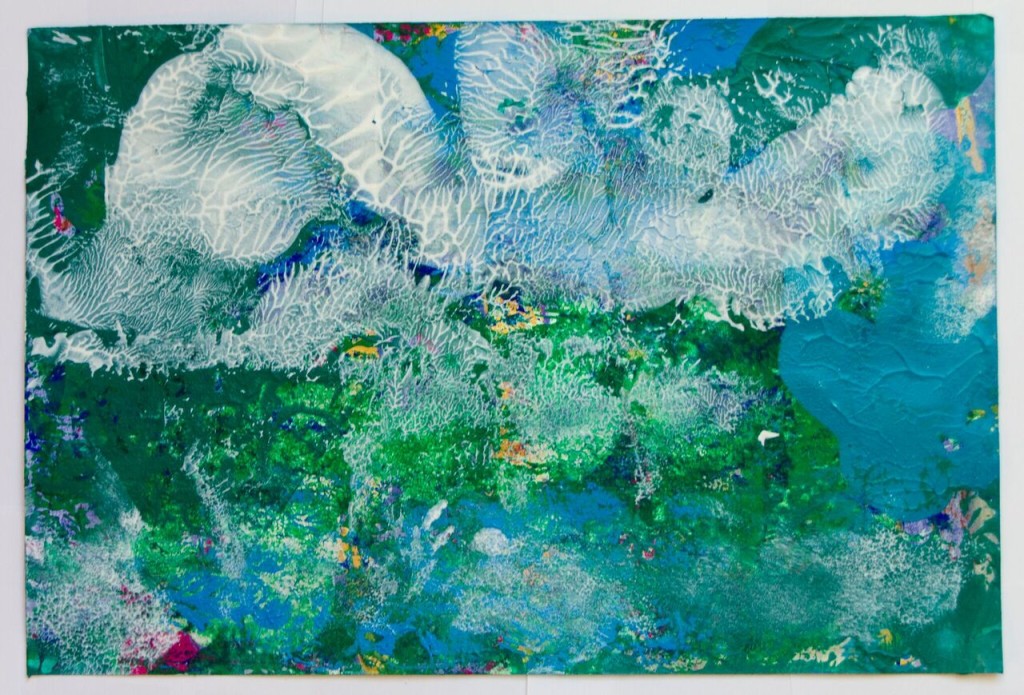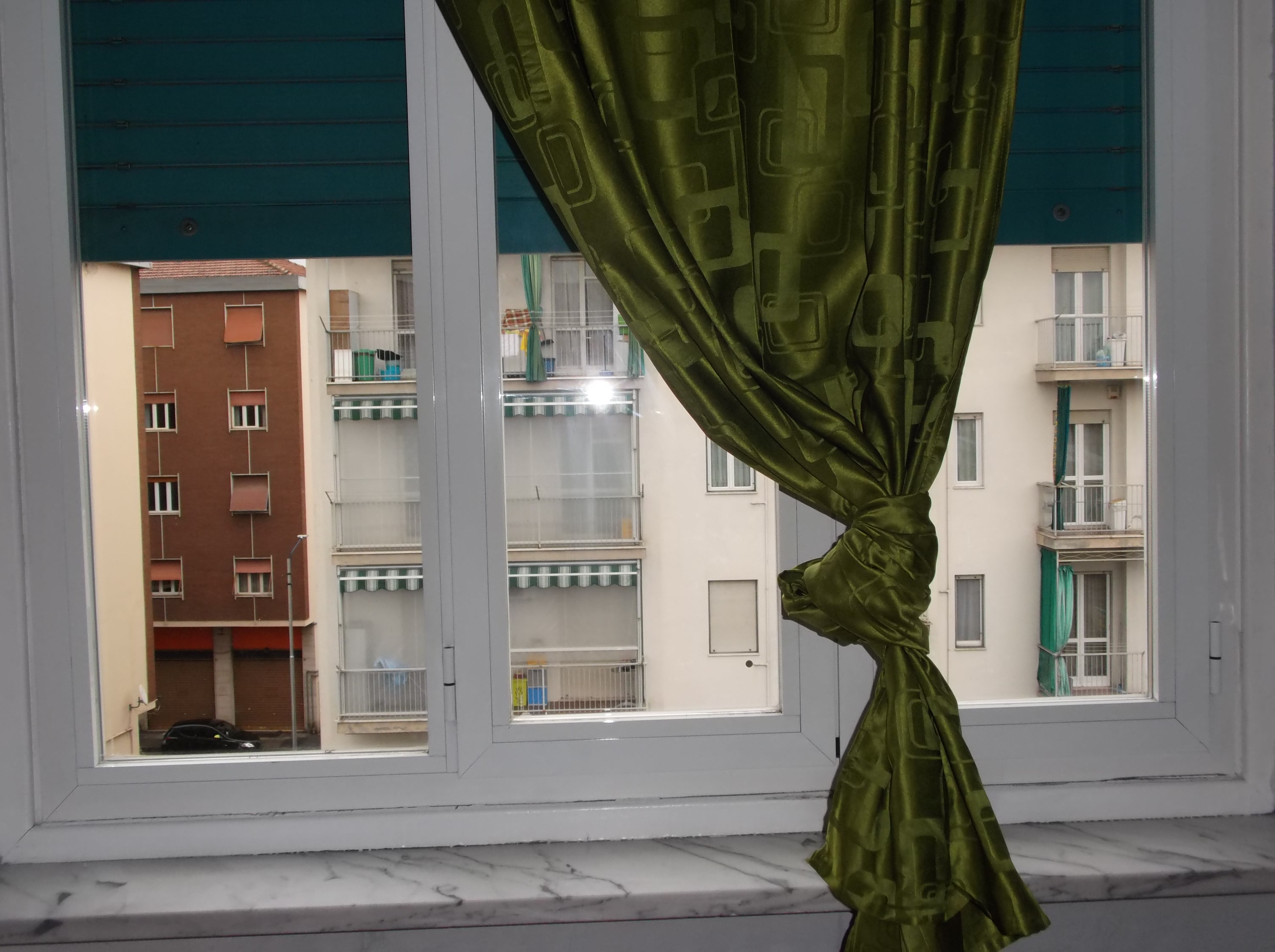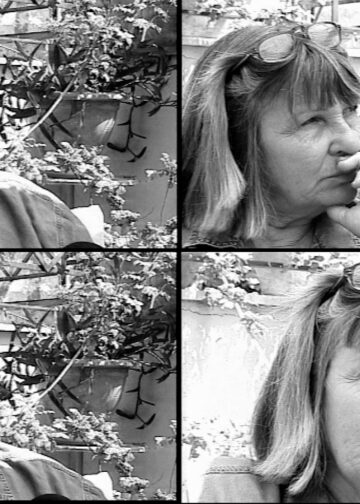To avoid censorship and persecution as a journalist during the regime of Saddam Hussein, when, Dunya Mikhail moved to the United States from Iraq in 1996, she identified herself as a poet on her immigration papers. She shares in her interview that poetry saved her life, as it would not have been possible otherwise to get the permission to leave her country if she had stated her occupation as a journalist. She gives a chilling account of her experiences working in Iraq as a journalist under the dictatorship of Saddam Hussein, and her observations as a progressive woman in a conservative society . She also shares some beautiful memories of Iraq, and gives the reference of a Tablet from her poetry collection “The Iraqi Nights” translated into English from the original Arabic by Kareem James Abu-Zeid. She writes:
“We cross borders lightly
like clouds.
Nothing carries us,
but as we move on
we carry rain,
and an accent,
and a memory
of another place.”
Mikhail has written and published six books in Arabic, three in English, and one in Italian. These include The Iraqi Nights, Diary of a Wave Outside the Sea, and The War Works Hard. Her honors and awards include the Kresge Fellowship, the Arab American Book Award, and the United Nations Human Rights Award for Freedom of Writing. Her book The War Works Hard was shortlisted for a Griffin, and named one of “Twenty-Five Books to Remember from 2005” by the New York Public Library.
Here is an interview with this important international poet of our time –
KSC: Who is Dunya Mikhail to you?
DM: Like everyone else, she’s half angel and half devil.
KSC: Tell us a myth about yourself that is popular but not true.
DM: It’s popular about writers in general that they write in quiet places.That’s not true about me. I produce mostly in the noise. I just don’t hear it.
KSC: You write in Arabic and English. What makes you choose a particular language when you write? When did you start writing?
DM: I write in Arabic and sometimes translate my writing into English. Arabic is the language I write and dream in. I started writing in the elementary time, but in secondary school, they called me “the poet” because I was giving poems as gifts for my friends in their birthdays.” It became more serious for me in the University of Baghdad because I was meeting with other poets and we were reading to each others. In the Iraqi media, they called us “the war generation” but, ironically, all the Iraqi generations after me up to this moment are war generations.
KSC: What are the advantages and disadvantages of being a multilingual writer?
DM: It’s annoying because you write or type in opposite directions in the page (from right to left and from left to right) but the advantage is that the second language made me more sensitive towards my first language. Also when I try to translate my poem, I understand it better so it’s a chance to re-edit.
KSC: How Arabic being your first language challenged your studies and living in the United States?
DM: Well, I was a journalist back home. Here, I didn’t pursue journalism because I know it needs a strong language skills and English as second or third language was not powerful enough. I changed my profession into teaching Arabic language because that’s the language I was in control of. But I remember something that might not be related directly to your question. One time, after ten years of being here and becoming an American citizen, a woman sitting in front of me in an airplane was annoyed by my Arabic language. I was speaking with my daughter and that was my daughter’s first trip ever by airplane. I didn’t want to make a scene and ruin the experience of my daughter so I just gave that woman a look. But my daughter switched to English. It happened once but It stayed in my mind.
KSC: You are a poet, memoirist and journalist. Whose voice is the strongest in you?
DM: I am a poet first.
KSC: Tell us about the incidence that was instrumental in making the decision of you coming to the United States?
DM: One of the incidences was a meeting I attended as a journalist in the Celebrations Hall in Baghdad. It was mandatory for all journalists in Baghdad to attend that meeting. After waiting in the hall for awhile waiting for someone to talk to us, two journalists were seated in the stage and then someone named them “traitors” and then they were beaten and taken by other men and all disappeared behind the curtain to the unknown. That was the same hall in which we watched plays such as Shakespeare’s and the actors would kill each others but at the end they would come back from behind that curtain and greet us, we the audience, and we would applaud. But that play, the real one, was so ugly and was meant to intimidate us. I felt humiliated to watch that and do nothing in response. That moment I decided to leave the country. Then someone interrogated me (he said he was interviewing me) after the publication of my “Diary of A Wave Outside the Sea.” I was able to leave on time because it was written in my passport that “my profession is a poet” and that required no paper work that the other professions would require in passing the Iraqi border to the outside.
KSC: In your previous interviews, you have talked about the freedom of expression being limited in Iraq due to the censorship. As a journalist, how did you mange to write what was important to you, yet survive the wrath of Saddam’s regime?
DM: Like other Iraqi writers, I used metaphors to hide my meaning from the censors. I wanted to be understood by the readers but not by the censors. Our poems were onions with layers of meanings which was probably good for poetry. Actually, a friend told me that I was writing better when I was in Iraq. Anyways, writers and censors were playing hide and seek all the time.
KSC: You have also mentioned about the preceding censorship for the writers in the US. Do you think this censorship applies only toward the immigrant writers? Did this censorship ever stop you from writing what you would have written otherwise? Please elaborate.
DM: American are nice and their speech is usually “appropriate” or limited to what’s appropriate. I thought that they probably would not be censored if they lived in the Middle East because everything they say is “appropriate” and fits with the requirements of the censorship department back home. I mean the censorship here precedes speech as opposed to censorship in Iraq where censorship follows a speech. So censorship here is somehow implicit. I feel it in the air, even though it doesn’t have a certain building with real employees and job titles like the way it was in Iraq.
KSC: As a female born and raised in a middle-eastern country, were you bothered by women not having equal rights as men? What is that you disliked the most as a woman growing up in Iraq, that you would not wish for any woman?
DM: The first thing that bothered me as a woman (which would bother me wherever I lived) was when I had the period and learned that I was supposed to bleed every month. But then the war against Iran was announced and all men (not women) where called to carry arms and fight the Iranians. That moment I was happy to be a girl because who knew how much the men would bleed in the battlefront, probably without aid. I was also bothered when I learned how to ride the bicycle, yet was not allowed to ride it because it was not common for girls to ride bicycles in our neighborhood. I was bothered when I graduated from high school and wanted to continue my study abroad and the government said, “girls are not permitted to study abroad in the time of war.” I was bothered when I needed a “mahram” (male chaperone) to accompany me when I traveled.
KSC: What do you like the most about Iraq?
DM: The Tigris River, the dates trees, the razqqi flower, al-Muttanabi Street, Jawad Saleem’s Freedom Monument, the boiling tea with cardamom, my friends, my home.
KSC: You left Iraq under unusual circumstances. How did it affect your journey as an immigrant? Did you ever feel bias and hatred for being a Muslim and an Iraqi while living in the United States?
DM: I am a Christian Iraqi. So I was minority back home as I am a minority here. But I was lucky, I left with a suitcase. These days, people of my minority groups are forced to leave empty handed.
KSC: How was the transition of your creative journey from Iraq to the US?
DM: When I got the visa to the US, a friend in Jordan warned me that “poetry is marginal in America.” Well, I know that poetry is not trendy but my poetry was translated and reached wider audience than I thought. When I arrived America (Detroit, 1996), I had a special treatment by a policewoman in the airport. She asked me many questions and took my fingerprints. I was not sure if I was supposed to smile when she took my picture and didn’t know what she thought of me, a criminal or a famous poet. I didn’t expect that after I saw all that I saw. I thought she would say “Oh, finally, you arrived? Good girl!” Anyways, that resulted in a poem I wrote titled “America.” But the main transition was the second life of my poems in English and the interaction with American writers and audience. That really enriched my experience.
KSC: The central themes of your work are war, exile and loss. Would you consider writing on new themes and issues?
DM: I don’t think of themes for writing.
KSC: “Diary of a Wave Outside the Sea” seems like a metaphor of your life. What is it like to be a wave outside the sea? Would you ever like to return to the sea where you emerged from?
DM: When I left, I reminded myself not to look back. I had that condition, like Orpheus. But just like how Orpheus turned back and lost his beloved, I did turn back this year, after twenty years. I made a trip to Iraq last summer because of my new book. I wanted to meet with the people in the camps. I was ready to hear their stories, but they seemed ready to give me hope. I wanted to console them, but they seemed ready to console me. I was offered tea by every tent I stopped by. Well, tea is very basic need for Iraqis.
KSC: You lived in Iraq during the first Gulf war and in the United States during the second gulf war. How difficult was it for you to handle Iraq’s invasions socially, politically and emotionally, living an irony of being both an ally and enemy of both your countries?
DM: Well, the strange thing is that almost every American president in the modern history had to announce war on Iraq. First was Bush the father, then Bush the son, and Clinton was the holy spirit, he just had a quick attack on Iraq. But the president that made me feel so emotional about Iraq is Trump when he said “Iraq does not exist.” I know very well it exists. It does exist for me.
KSC: Do you consider the two Gulf wars in Iraq just or unjust?
DM: There’s never a just war, I believe.
KSC: The image of the United States is not positive in the middle-eastern countries. After living in America for two decades, do you have any message for the people living in the mid-east to break that stereotype image of the United States?
DM: It’s noticeable that whatever happens in the world, the Arabs blame America for it. They need to learn to blame themselves sometimes and stop taking themselves so seriously. Just like how the Arabs are stereotyped here, the Americans are stereotyped in the Arab world.
KSC: Two decades later, how do you remember Iraq? What changes did you see during your recent visit there? Are these changes better or worse in your opinion?
DM: Unfortunately, the political dictatorship is now replaced with religious dictatorship. Militias and armed groups are in control of the country. They kidnap and kill and humiliate anybody who tells them “no” or expresses an idea that’s not in their interest. On the other hand, you find liberal groups who give you hope, for example the young girls who decided to wear bicycles in the neighborhoods that don’t find this as a common practice or the musicians who play music in the ruined area after explosions. Every Friday, for more than a year now, people walk in al-Tahrir Square in Baghdad demanding reforms and protection of human rights. The strange thing, the government praises their efforts and nothing happens, no change!
KSC: You have an upcoming book about the stories of women who escaped from ISIS, in Arabic. How did you learn about the stories of those women? Did you have personal contacts with them?
DM: When ISIS groups attacked the villages in the north of Iraq, I made contacts with my relatives and friends there to check on their safety. I learned that Telkaif, the village of my ancestors fell to ISIS. Their black fags were raised in the village and the original residents including my cousins all escaped. Then I talked with a friend who was a journalist. He let me listen to a record he had with a woman who escaped ISIS. She haunted me and I dialed her number to speak with her. The person who answered the phone was by chance the one who rescued her. I found his story so interesting. I kept speaking with him for a year, almost every day he was telling me about someone he saved or failed to save. Those stories made me go back to my country to meet them in person.
KSC: Your writings have won many awards, including the United Nations Human Rights Award for Freedom of Writing. How do you feel about these recognition? How do they inspire you?
DM: Encouragement is always helpful especially for two groups of people: writers and children.
KSC: You are the co-founder of Mesopotamian Forum for Art and Culture in Michigan. As a cultural ambassador, what goals are you trying to achieve?
DM: It all happened spontaneously when my friends and I felt that we needed to activate the cultural atmosphere of our community in Michigan. So we organize readings and art events whenever we can. We made a deal with one of the local restaurants to use their hall for our activities. They don’t charge us for it but they make profit from people who stay after the events and purchase drinks and food from the restaurant. This way, we get the chance to listen to each others. The presentations are usually in Arabic and that somehow brings us back home for a moment.
KSC: Do you have any message to empower women and the writers living in countries that are currently under fundamentalist, authoritarian rules?
DM: Well, two days ago, a journalist in Baghdad was kidnapped due to her writings, and I am so concerned about her. Afrah Shawqi is a courageous female journalist who is also an activist. I feel so ashamed and don’t know what to do for her. You may see my article about her in “Arabic Literature in English” site, published today. *
KSC: How the current political situation and human right issues in the world make you feel? Do you see hopes for the mankind?
DM: Let me quote a friend of mine, Dr. Faris Kamal Nadhmi, who is a psychologist, “Desperation is just like hope, it may make changes happen too. Desperation is people’s postponed hope.”
KS: Please share one of your favorite poems with us.
DM: It is hard to pick one. To read some of Dunya Mikhail’s poems from “The Iraqi Nights” click BELOW.
*****
* A couple weeks after the Dunya Mikhail’s interview, Iraqi journalist Afrah Shawqi was released unharmed. She was not found guilty. Iraq still remains one of the most dangerous countries for the journalist.
Dunya Mikhail was born in Iraq in 1965 and came to the United States in 1996. She has six books in Arabic, three in English, and one in Italian. They include The Iraqi Nights, Diary of a Wave Outside the Sea, and The War Works Hard. She also edited a pamphlet of Iraqi poetry titled 15 Iraqi Poets. Her honors include the Kresge Fellowship, the Arab American Book Award, and the United Nations Human Rights Award for Freedom of Writing. The War Works Hard was shortlisted for a Griffin, and named one of “Twenty-Five Books to Remember from 2005” by the New York Public Library. She is the co-founder of Mesopotamian Forum for Art and Culture in Michigan. She currently works as an Arabic special lecturer at Oakland University in Michigan.
Featured image, painting by Barbara Gabriella Renzi Iule, “Mare e raggi di sole”.

























































